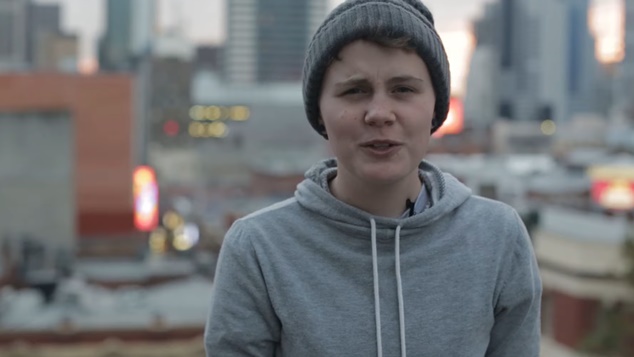
Today is International Pronouns Day, a day that seeks to make respecting, sharing, and educating about personal pronouns commonplace.
Referring to people by the pronouns they determine for themselves is basic to human dignity. Being referred to by the wrong pronouns particularly affects transgender and gender nonconforming people. Together, we can transform society to celebrate people’s multiple, intersecting identities.
While many people use gendered pronouns such as he, him and his, and she and her, other people might feel more comfortable using non-gendered terms like they, them and their. There’s even newer words some people like to use such as ze and fae,
Using the non-gendered ‘they’ as a pronoun is nothing new, people have being doing it for hundreds of years, and when you stop and think about it, you probably use they as a pronoun all the time without thinking about it.
Drag artist and playwright Taylor Mac wrote a play Hir which explored gender identity. Mac personally likes to use the pronoun ‘judy’. Black Swan State Theatre Company staged judys play back in 2018.
It’s respectful to make the effort to remember what someone’s pronouns are, and deliberately not using their pronouns is incredibly not cool. Occasionally you might get someone’s wrong, but simply apologise and try to remember for the next time.
Shige Sakurai (they), who founded the campaign for creating awareness about pronouns recently spoke about how many transgender and gender nonconforming people are regularly called by the wrong pronouns, which causes erasure and marginalisation.
“We must continue to critique anti-Blackness and policing. We must recognize how physical violence is buttressed by cultural violence. Transgender folks, especially Black people and those perceived to be feminine, have been at particular risk because of the compounding factors of anti-Blackness and misogyny, added on to transphobia. And transphobia itself is part of a larger racist and colonialist project,” Sakurai said.
“We need to recognise how colonial languages such as English, Spanish, and French have been foisted upon millions and erased or marginalised numerous traditional languages and identities, many of which included gender-neutral pronouns or terms describing diverse genders beyond a cisgender binary. To counter marginalisation, we must reclaim and create space within all languages for the empowerment of all people.”
OIP Staff
You can support our work by subscribing to our Patreon
or contributing to our GoFundMe campaign.






